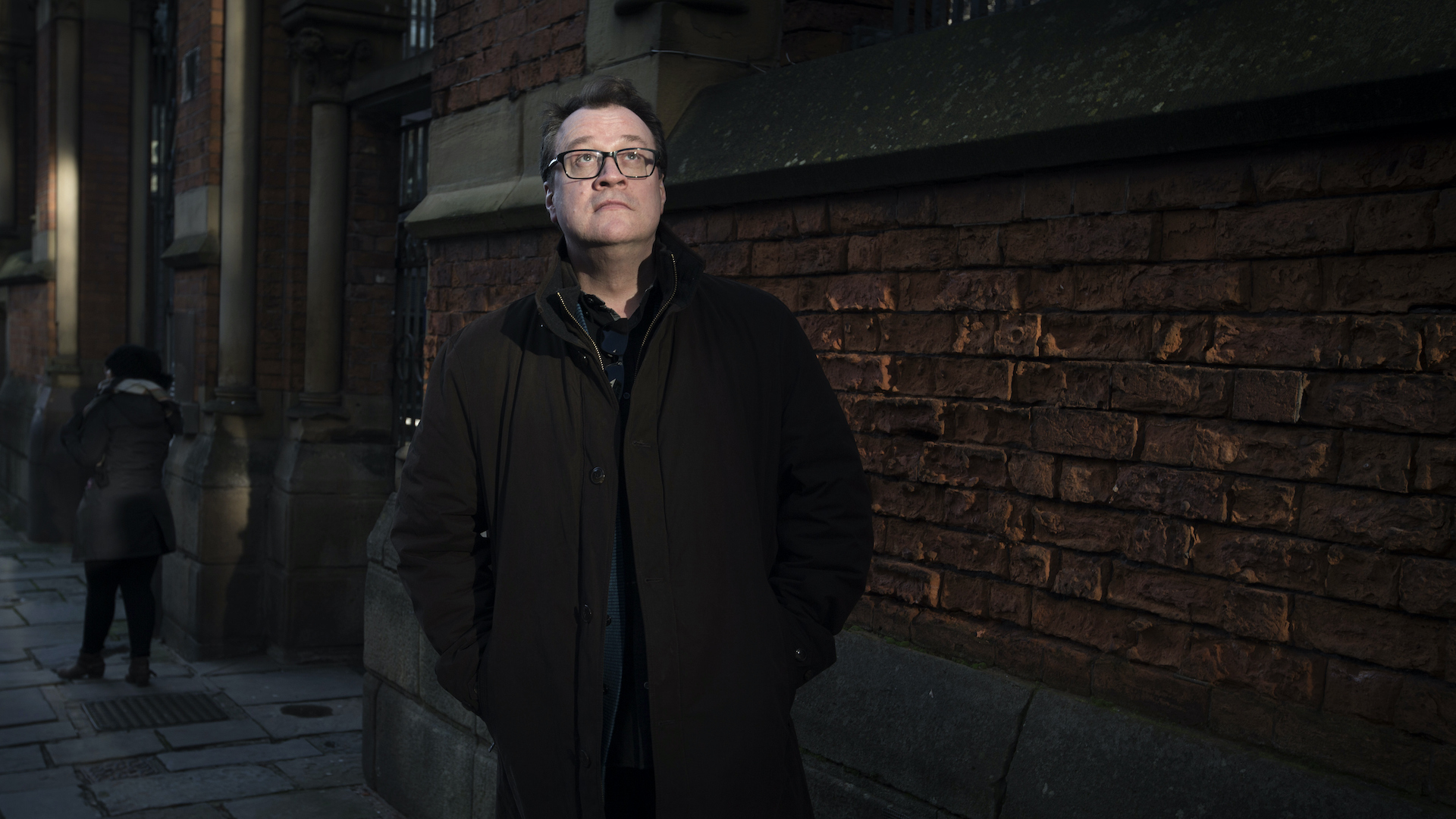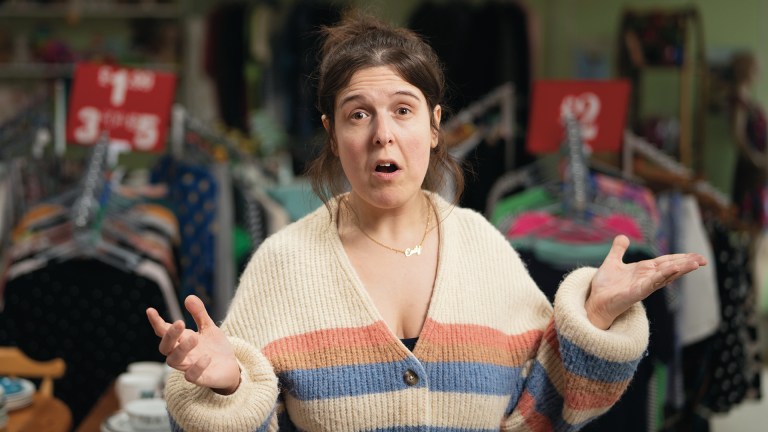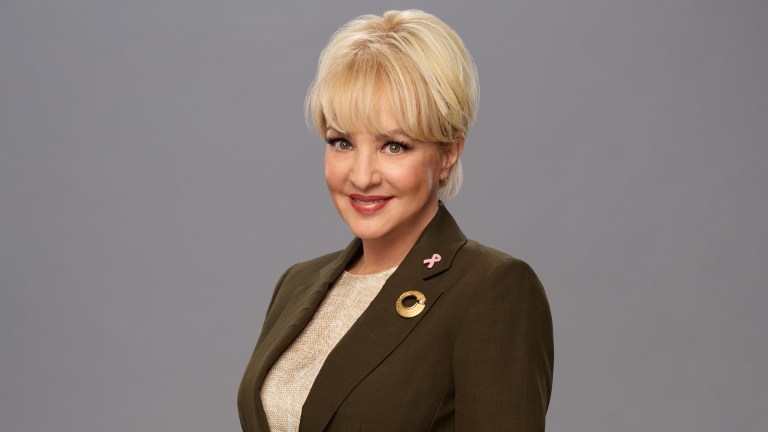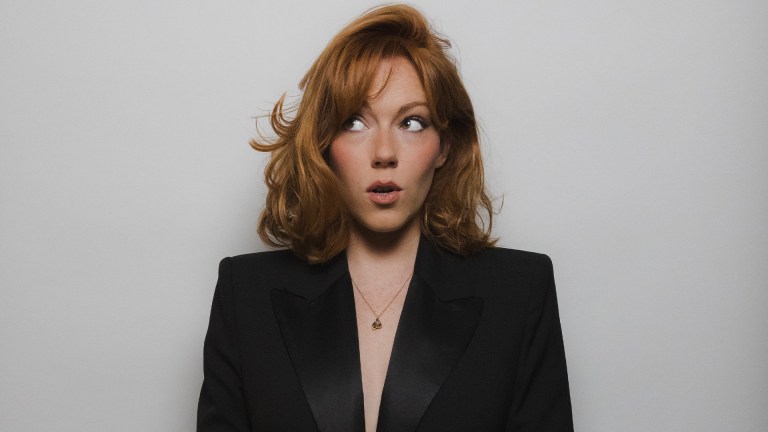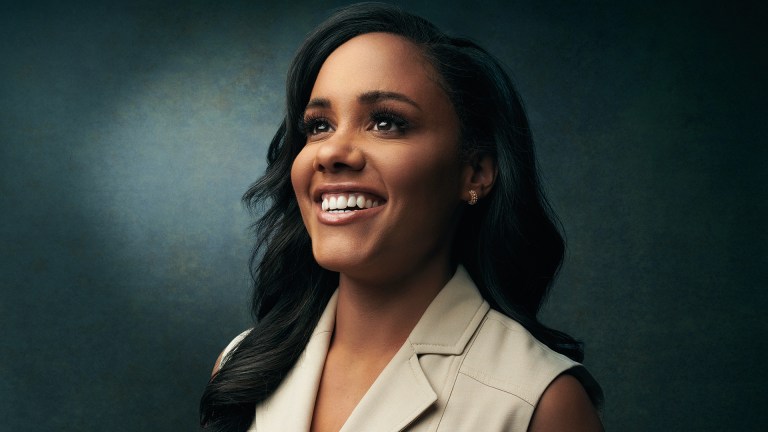Davies, now 57, recalls the slow realisation that something awful was happening to gay men – and the understandable reluctance of so many to believe what was going on.
“The whole thing seemed impossible,” he says, speaking via Zoom, the head of a Cyberman on the sofa behind him. “We finally get equality, we finally get the law on our side, and this disease comes along and kills us? It sounds false. It felt like fake news before we had invented the notion of fake news.
“And then of course, you are joined by this holy choir of, especially American, evangelicals saying it is sent by God to kill you, which you are denying even as people are dying all around you.”
In It’s a Sin, Davies begins with the joy. It is, perhaps, his biggest gift, this ability to see and write the joy in people. And by showing these bold and the beautiful young men, in their element, he also shows what is at stake and what was to be lost.
“Everyone coming to this will know how their lives end,” he reasons. “I want to show how those lives are lived before that.”
The lives he depicts are full of love, full of sex, full of parties, full of thrills and excitement. The group of smalltown boys who find each other in London, congregate in a large flat they nickname the Pink Palace (the same name Davies’s friends gave to their own pad in North London in the 1980s).
Advertising helps fund Big Issue’s mission to end poverty
There is quiet, shy, inexperienced and relatively square Colin (Callum Scott Howells), all set on becoming a Savile Row tailor; Roscoe (Omari Douglas), who blazes a dramatic trail out of his deeply religious Nigerian parents’ house in the suburbs to find a new home as a glamorous gay bar host; and front and centre is Ritchie Tozer, played by pop star and sometime actor Olly Alexander – who leaves his claustrophobic, closeted home in the Isle of Wight for university and the bright lights of London.
They are joined by Jill (Lydia West): “She is the heart of the story,” he says. “It is based on my friend Jill – I couldn’t even change her name. Our best female friends are a huge part of our lives and to have it brought to life by Lydia like that is joy upon joy. What a treat.”
This is not the first time, Davies has built an authentic, loving, supportive chosen family at the heart of one of his shows – following Queer as Folk, Doctor Who and Cucumber.
“I love writing that. You would think I came from a terrible family and I don’t. I had a lovely mum and dad. They are no longer with us. I have two sisters – one lives down there,” he says, pointing out beyond his computer screen.
“And one is just up the hill. My nieces are spread out in these houses in front of me. We have all come home to Swansea and love each other very much.
Advertising helps fund Big Issue’s mission to end poverty
“But that is ignoring that experience of being closeted when you are young. So you are not being your true self, as the modern phrase would have it, you are not living your proper life. And certainly in the 70s or 80s you weren’t. And it still happens now. Let’s not pretend everyone is fluid and out and happy – those closeted schoolchildren are still staring through the gate wishing for their future to come. And it will.
“I went through that very path of going to university, slowly coming out, getting drunk, snogging a boy, into your twenties, finding Manchester and finding Canal Street. That invented family does exist and provides great succour in my life and friends I still have to this day.”
Olly Alexander says watching Queer As Folk as a 14-year-old helped him become the brilliant, crusading, important gay man he is today. Considering how much Alexander helps young gay people today, through his music with band Years and Years (including 2015’s Number One album Communion), his words and his BBC3 documentary Growing Up Gay, how big a compliment is that?
https://twitter.com/alexander_olly/status/1346455221988450306?s=20
“He means it as well. He talks about it very vividly, so that is an astonishing compliment. It is a lovely thing to say, but he would be Olly Alexander with or without me. I’m very certain about that. When you look at him now, this man, this boy, he is like a comet. He is extraordinary. He is an extraordinarily rare and amazing person, and nothing would have stopped him being the gay boy that he is.
“After we cast him, he made that speech at Glastonbury [in 2019] where he stood up and addressed the world about gay rights. That was properly off the cuff and from the heart. He is a very, very rare person – we are lucky to have made this drama at a moment when he was the right person to play Ritchie. I am basking in his light.
Advertising helps fund Big Issue’s mission to end poverty
“Over the years, people have been very kind saying ‘your drama, especially Queer as Folk, really affected me and helped me to come out’. But that was a mind that was open and questing and demanding a gay influence and will find it.”
If there remains a seething fury just below the surface, there is also forgiveness in It’s A Sin. A forgiveness that may have been harder to muster had RTD written this drama as a younger man, earlier in his career.
There is a forgiveness towards parents still unable to be truthful about their sons’ cause of death; a forgiveness, too, of his younger self.
“It literally involved digging up not only my worst memories but the worst version of myself as well,” says Davies.
“I was very keen to do that. In those days, people were scared of taking a sip from a cup someone with HIV had drunk from. Those scared people are always portrayed as the villains, as homophobic – so I wanted to swing that round and show one of our heroes being terrified of a mug. Jill can’t let it go – she washes it, she cleans it, she hides it, she goes to bed thinking about it, she gets up to put it in the bin, then takes it out of the bin and smashes and puts it back in the bin. And that is a character that we love.
“I’m trying to balance history. I’m not trying to forgive homophobes… but maybe I am. Maybe that is the only way to start talking to those people is to pull down the barricades and talk to them about why they reacted in that way. I find homophobia fascinating. And it is buried in the heart of the series. Wait till you meet Ritchie’s mother, played by Keeley Hawes.”
Advertising helps fund Big Issue’s mission to end poverty
https://twitter.com/alexander_olly/status/1339638695113199618?s=20
And wait until you hear Ritchie’s astonishing – and astonishingly wrong – diatribe early in episode two. He’s smart, the cleverest of the Pink Palace crew, but also the most wrong. And his defiance – telling his housemates why a virus afflicting only gay men was impossible, why a cancer that could be transmitted was completely implausible – against a growing body of evidence, is a poignant and sad indictment of the lack of information, the lack of care, the lack of public health warnings in the early years of HIV.
“That scene is one of the reasons I wanted to write the entire drama,” says Davies. “It is pivotal, because it is not mentioned enough. The history of Aids tends to be written by the activists – which is absolutely right and fair, they were there.
“And those activists will be the people who in 1981 or 1982 were already on the frontline, like Larry Kramer was, like Toby Kushner [whose epic play Angels in America was revived recently] was. And they were already on top of it.
“But most of us weren’t. In a pre-internet age, pre-mobile phone age, most of us had no idea what was going on until 1984, 1985, I could mount an argument to say 1994, 1995. An awful lot of ignorance went on for decades.
“So I wanted to write that speech, and this was very much my perspective. He says, ‘We are being told that the virus affects haemophiliacs, Haitians and homosexuals’. And I remember literally saying, sarcastically, ‘What, it only affects people beginning with the letter H?’ Because I was too busy being clever and making jokes. If I had used my brain, there is a blood link shouting at you. But we didn’t understand.”
Advertising helps fund Big Issue’s mission to end poverty
Writing while suppressing some of the fury was, he says, a conscious choice.
“It is partly that it doesn’t suit me. I’ve got to find a way to write at my best and I am not naturally a furious writer. I get angry but it is not quite my territory.
“I had to take a deep breath and say, well, I am sitting here in the shadow of The Normal Heart, which is the most furious piece of work – and [its writer] Larry Kramer’s fury in life was world changing. But that has been made and therefore I can look to other places and maybe include some of that forgiveness we were talking about.
“That gives me new things to write, new space to write in. You need to see the last episode to see it come out in full, but it simmers, it bubbles under, the fury is still there.”
The path to enlightenment was slow, and actively hindered by the Thatcher and Reagan governments. Davies enacts his revenge on the former towards the end of the series – with a little help from Omari Douglas as Roscoe and, unwittingly, Stephen Fry, who plays his MP lover.
Key cultural moments helped bring a disease wilfully marginalised into the mainstream consciousness – Princess Diana hugging a young boy with Aids on a visit to New York in 1989, as dramatised in The Crown recently, or Dot Cotton being slowly schooled out of her ignorance in EastEnders in 1990-91.
Advertising helps fund Big Issue’s mission to end poverty
By the time Queer As Folk aired in 1999, the World Health Organisation estimated that 14 million people had died from Aids and 33 million were living with HIV. Our education is ongoing. And It’s A Sin will be a revelation to many.
Davies is full of praise for his young cast, many of whom were previously unknown, for the way they have schooled themselves.
“I love the way as young people they dug into the politics of this,” he says. “They loved the history. It is unfair to expect actors to represent the politics of your piece. I cast people in gay roles and the next thing you know, they are having to face journalists defending the rights of gays in the military or gay marriage. And it is not fair. It is not their job. Their job is to act.
“But this lot have been absolutely extraordinary. My god, they will discuss HIV. They read up on it, they researched it, they were passionate about it, they have been to dinners about it. Not just great actors, but a beautiful bunch of people.”
Airing at a time of a pandemic gives It’s A Sin an extra potency. Not that we need to have coughed and feared having coronavirus to find scenes – in which Alexander, as Ritchie, furtively and full of fear checks his back for lesions (an early sign of HIV) in the mirror – heartbreaking in the extreme.
Advertising helps fund Big Issue’s mission to end poverty
“I’m not daft, it will be interesting to see what the viewing figures are like, because it can be tough – especially in the age of a virus where people are genuinely rolling their eyes and saying ‘Don’t talk to me about a virus on a Friday night thank you very much’,” says Davies.
We talk about the over-representation of young LGBTQ+ people in the homeless population in the UK. And the fear that the economic fallout from Covid-19 could exacerbate that as sofa surfing is no longer an option. Davies has heard the stories.
“I do find it with this modern virus – I have a friend who is a barman on Canal Street who has told me about the suicide of friends over this past year in lockdown,” he says. “Young gay men on zero wages, living in rubbish flats, with no prospects – and along comes this pandemic and the same people end up forgotten.
“They stand there at their press conferences assuming everyone is online, everyone has a budget, everyone is furloughed – and as ever, and you will know this better than anyone – vast chunks of the population are being forgotten. As happened during the HIV virus.
“My god, if we can be niched, if we can be forgotten, then we will be. That is the astonishing lesson that keeps coming out of Westminster: if we can find a way to forget you, we will do it again and again and again.”
The fury is rising to the surface again. So does Davies fear for a future in which vital gay spaces could close forever during the current pandemic?
Advertising helps fund Big Issue’s mission to end poverty
“Yes, yes, yes,” he says. “But I also think we will survive. I worry about the future of theatres and the future of gay bars – but those kind of things always survive.
“We go underground. We will have the most amazing underground scene for a few years and will rise again.”
It’s a classic Russell T Davies ending. Anger and fear defeated, as they always must be, by hope for a better future.
It’s A Sin begins on Channel 4 on January 22 – all episodes will then be available via All4. It’s a Sin is available on Blu-ray, DVD & Digital from 22nd February
